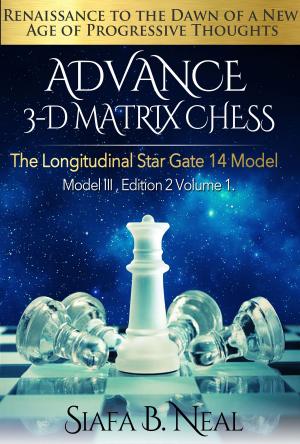Peace Philosophy Magazine II
I am free, and was free, and always will be free.
Nonfiction, Religion & Spirituality, Eastern Religions, Zen Buddhism, Philosophy, Ethics & Moral Philosophy, Buddhism| Author: | Heinz Duthel | ISBN: | 1230000135716 |
| Publisher: | Heinz Duthel | Publication: | May 24, 2013 |
| Imprint: | Language: | English |
| Author: | Heinz Duthel |
| ISBN: | 1230000135716 |
| Publisher: | Heinz Duthel |
| Publication: | May 24, 2013 |
| Imprint: | |
| Language: | English |
I will here point out the difference between Schopenhauer and the Indian philosophy. Schopenhauer says that desire, or will, is the cause of everything. It is the will to exist that make us manifest, but we deny this. The will is identical with the motor nerves. When I see an object there is no will; when its sensations are carried to the brain, there comes the reaction, which says "Do this", or "Do not do this", and this state of the ego-substance is what is called will. There cannot be a single particle of will which is not a reaction. So many things precede will. It is only a manufactured something out of the ego, and the ego is a manufacture of something still higher - the intelligence - and that again is a modification of the indiscrete nature. That was the Buddhistic idea, that whatever we see is the will. It is psychologically entirely wrong, because will can only be identified with the motor nerves. If you take out the motor nerves, a man has no will whatever. This fact, as is perhaps well known to you, has been found out after a long series of experiments made with the lower animals.
We will take up this question. It is very important to understand this question of Mahat in man, the great principle, the intelligence. This intelligence itself is modified into what we call egoism, and this intelligence is the cause of all the powers in the body. It covers the whole ground, sub-consciousness, consciousness, and super-consciousness. What are these three states? The sub-conscious state we find in animals, which we call instinct. This is almost infallible, but very limited. Instinct rarely fails. An animal almost instinctively knows a poisonous herb from an edible one, but its instinct is very limited. As soon as something new comes, it is blind. It works like a machine. Then comes a higher state of knowledge which is fallible and makes mistakes often, but has a larger scope, although it is slow, and this you call reason. It is much larger than instinct, but instinct is surer than reason. There are more chances of mistakes in reasoning than in instinct. There is a still higher state of the mind, the super-conscious, which belongs only to Yogis, to men who have cultivated it. This is infallible and much more unlimited in its scope than reason. This is the highest state. So we must remember, this Mahat is the real cause of all that is here, that which manifests itself in various ways, covers the whole ground of sub-conscious, conscious, and super-conscious, the three states in which knowledge exists.
Now comes a delicate question which is being always asked. If a perfect God created the universe, why is there imperfection in it? What we call the universe is what we see, and that is only this little plane of consciousness and reason; beyond that we do not see at all. Now the very question is an impossible one. If I take only a small portion out of a mass of something and look at it, it seems to be inharmonious. Naturally. The universe is inharmonious because we make it so. How? What is reason? What is knowledge? Knowledge is finding the association about things. You go into the street and see a man and say, I know this is a man; because you remember the impressions on your mind, the marks on the Chitta. You have seen many men, and each one has made an impression on your mind; and as you see this man, you refer this to your store and see many similar pictures there; and when you see them, you are satisfied, and you put this new one with the rest. When a new impression comes and it has associations in your mind, you are satisfied; and this state of association is called knowledge. Knowledge is, therefore, pigeon-holing one experience with the already existing fund of experience, and this is one of the great proofs of the fact that you cannot have any knowledge until you have already a fund in existence. If you are without experience, as some European philosophers think, and that your mind is a tabula rasa to begin with, you cannot get any knowledge, because the very fact of knowledge is the recognition of the new by means of associations already existing in the mind. There must be a store at hand to which to refer a new impression. Suppose a child is born into this world without such a fund, it would be impossible for him ever to get any knowledge. Therefore, the child must have been previously in a state in which he had a fund, and so knowledge is eternally increasing. Slow me a way of getting round this argument. It is a mathematical fact. Some Western schools of philosophy also hold that there cannot be any knowledge without a fund of past knowledge. They have framed the idea that the child is born with knowledge. These Western philosophers say that the impressions with which the child comes into the world are not due to the child's past, but to the experiences of his forefathers: it is only hereditary transmission. Soon they will find out that this idea is all wrong; some German philosophers are now giving hard blows to these heredity ideas. Heredity is very good, but incomplete, it only explains the physical side. How do you explain the environments influencing us? Many causes produce one effect. Environment is one of the modifying effects. We make our own environment: as our past is, so we find the present environment. A drunken man naturally gravitates to the lowest slums of the city.
I will here point out the difference between Schopenhauer and the Indian philosophy. Schopenhauer says that desire, or will, is the cause of everything. It is the will to exist that make us manifest, but we deny this. The will is identical with the motor nerves. When I see an object there is no will; when its sensations are carried to the brain, there comes the reaction, which says "Do this", or "Do not do this", and this state of the ego-substance is what is called will. There cannot be a single particle of will which is not a reaction. So many things precede will. It is only a manufactured something out of the ego, and the ego is a manufacture of something still higher - the intelligence - and that again is a modification of the indiscrete nature. That was the Buddhistic idea, that whatever we see is the will. It is psychologically entirely wrong, because will can only be identified with the motor nerves. If you take out the motor nerves, a man has no will whatever. This fact, as is perhaps well known to you, has been found out after a long series of experiments made with the lower animals.
We will take up this question. It is very important to understand this question of Mahat in man, the great principle, the intelligence. This intelligence itself is modified into what we call egoism, and this intelligence is the cause of all the powers in the body. It covers the whole ground, sub-consciousness, consciousness, and super-consciousness. What are these three states? The sub-conscious state we find in animals, which we call instinct. This is almost infallible, but very limited. Instinct rarely fails. An animal almost instinctively knows a poisonous herb from an edible one, but its instinct is very limited. As soon as something new comes, it is blind. It works like a machine. Then comes a higher state of knowledge which is fallible and makes mistakes often, but has a larger scope, although it is slow, and this you call reason. It is much larger than instinct, but instinct is surer than reason. There are more chances of mistakes in reasoning than in instinct. There is a still higher state of the mind, the super-conscious, which belongs only to Yogis, to men who have cultivated it. This is infallible and much more unlimited in its scope than reason. This is the highest state. So we must remember, this Mahat is the real cause of all that is here, that which manifests itself in various ways, covers the whole ground of sub-conscious, conscious, and super-conscious, the three states in which knowledge exists.
Now comes a delicate question which is being always asked. If a perfect God created the universe, why is there imperfection in it? What we call the universe is what we see, and that is only this little plane of consciousness and reason; beyond that we do not see at all. Now the very question is an impossible one. If I take only a small portion out of a mass of something and look at it, it seems to be inharmonious. Naturally. The universe is inharmonious because we make it so. How? What is reason? What is knowledge? Knowledge is finding the association about things. You go into the street and see a man and say, I know this is a man; because you remember the impressions on your mind, the marks on the Chitta. You have seen many men, and each one has made an impression on your mind; and as you see this man, you refer this to your store and see many similar pictures there; and when you see them, you are satisfied, and you put this new one with the rest. When a new impression comes and it has associations in your mind, you are satisfied; and this state of association is called knowledge. Knowledge is, therefore, pigeon-holing one experience with the already existing fund of experience, and this is one of the great proofs of the fact that you cannot have any knowledge until you have already a fund in existence. If you are without experience, as some European philosophers think, and that your mind is a tabula rasa to begin with, you cannot get any knowledge, because the very fact of knowledge is the recognition of the new by means of associations already existing in the mind. There must be a store at hand to which to refer a new impression. Suppose a child is born into this world without such a fund, it would be impossible for him ever to get any knowledge. Therefore, the child must have been previously in a state in which he had a fund, and so knowledge is eternally increasing. Slow me a way of getting round this argument. It is a mathematical fact. Some Western schools of philosophy also hold that there cannot be any knowledge without a fund of past knowledge. They have framed the idea that the child is born with knowledge. These Western philosophers say that the impressions with which the child comes into the world are not due to the child's past, but to the experiences of his forefathers: it is only hereditary transmission. Soon they will find out that this idea is all wrong; some German philosophers are now giving hard blows to these heredity ideas. Heredity is very good, but incomplete, it only explains the physical side. How do you explain the environments influencing us? Many causes produce one effect. Environment is one of the modifying effects. We make our own environment: as our past is, so we find the present environment. A drunken man naturally gravitates to the lowest slums of the city.















